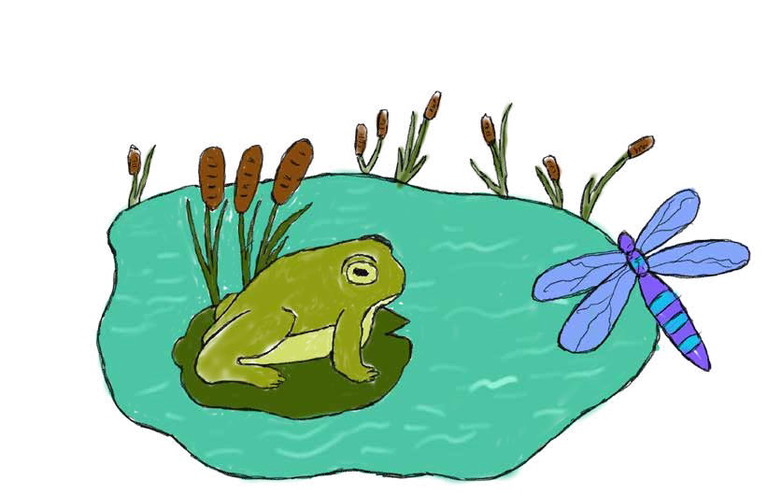SUSTAINABILITY

Nurturing the future
The Department for Education’s Climate Ambassadors explain how the programme can support early years sustainability efforts
In the face of increasing climate challenges, the role of early years education in fostering a sustainable future is more crucial than ever. The values and behaviours instilled in children during their formative years can set the stage for a lifetime of environmental stewardship. Recognising this, the new Climate Ambassadors programme is set to transform how sustainability is integrated into early years settings across England.
Why sustainability matters in early years settings
Sustainability and climate education are no longer optional add-ons but essential elements of a well-rounded curriculum. With the world grappling with the twin crises of climate change and nature loss, it’s vital that young children are introduced to the concepts of environmental responsibility and green skills early on. Of course, Under 5 readers need no reminding that nurseries and pre-schools play a pivotal role in this effort, shaping the attitudes and behaviours of the youngest members of our society.
Early years educators have the unique opportunity to harness children’s natural curiosity about the world around them. By embedding sustainability into everyday activities, children can learn to appreciate nature, understand the consequences of their actions, and develop a deep-seated sense of
responsibility towards the environment. This foundation not only benefits the planet but also nurtures empathy, critical thinking, and a sense of community.
Sustainability action is also about future-proofing early years settings. With sustainability at the core of your practice, you create environments that are not only great places to learn and work, but also resilient in the face of future challenges – whether that’s energy price spikes, flooding or staff not being able to get to work because of extreme weather.
Introducing the Climate Ambassadors programme
The Climate Ambassadors programme is a timely scheme that offers early years settings expert support to plan and enact whole-setting approaches to sustainability.
Commissioned by the Department for Education (DfE), it’s part of a suite of initiatives that support the delivery of their Sustainability and Climate Change Strategy for the education sector.
Central to the Climate Ambassadors programme is the development of a climate action plan – something the DfE has called for across all education settings, from early years to higher education, by the end of next year. This scheme provides access to trained experts who can guide settings through the process, from understanding the basics of a climate action plan to implementing it effectively within your setting.
The Early Years Alliance has been a major contributor to ensuring the scheme is fit to serve early years settings, with a voice on the project’s steering group.
Practical support and resources
Climate Ambassadors sits alongside two other DfE commissioned programmes and works within an ecosystem of other sustainability initiatives. It’s vital to the Climate Ambassadors team that early years settings are able to access support in the same way as school and college counterparts can, and that we help you navigate the support that’s available.
This could include the digital support that’s available to help you get started or prioritise your next steps using resources through the online Sustainability Support for Education platform, or accessing digital tools and resources to empower children and young people to lead the way in decision making
and action in your setting through the National Education Nature Park.
A volunteer Climate Ambassador can help you find the right support for your setting as well as identify where you’re currently at. Whether you need help with a specific aspect, such as building your team’s confidence or navigating the vast array of available resources, the programme is designed to assist at every step.
What about Ofsted?
Alongside DfE’s requirements, sustainability efforts in early years settings can also help demonstrate compliance with the Ofsted framework. Although sustainability is not currently explicitly mentioned in the framework, a whole-institution approach to sustainability can enhance several key areas that Ofsted inspectors evaluate:
Quality of education: Incorporating sustainability into the curriculum helps build children’s knowledge, skills, and understanding of the world, directly contributing to the quality of education.
Personal development: Sustainability initiatives foster responsibility, resilience, and independence in children. By engaging in sustainability projects, children learn to work together, think critically, and take pride in their achievements, which supports their overall personal development.
Leadership and management: Embedding sustainability into the ethos of an early years setting can strengthen leadership by demonstrating a clear and ambitious vision. Leaders who prioritise sustainability are not only improving their settings but are also engaging effectively with staff, parents, and the wider community, which aligns with Ofsted’s expectations for strong leadership.
The Climate Ambassadors programme is designed to help settings highlight these strengths through your climate action plans, ensuring that sustainability efforts are clearly linked to the Ofsted’s key areas.
Join the movement: register your setting today
The Climate Ambassadors scheme offers a truly valuable opportunity for early years settings to play an active role in practical sustainability action that goes beyond the ‘bins and lightbulbs’.
For more information, visit https://climateambassadors.org.uk/
Together, we can nurture a generation of children who will lead the charge for a sustainable future and ensure our sector can continue to create wider ripples of impact across the communities we serve.